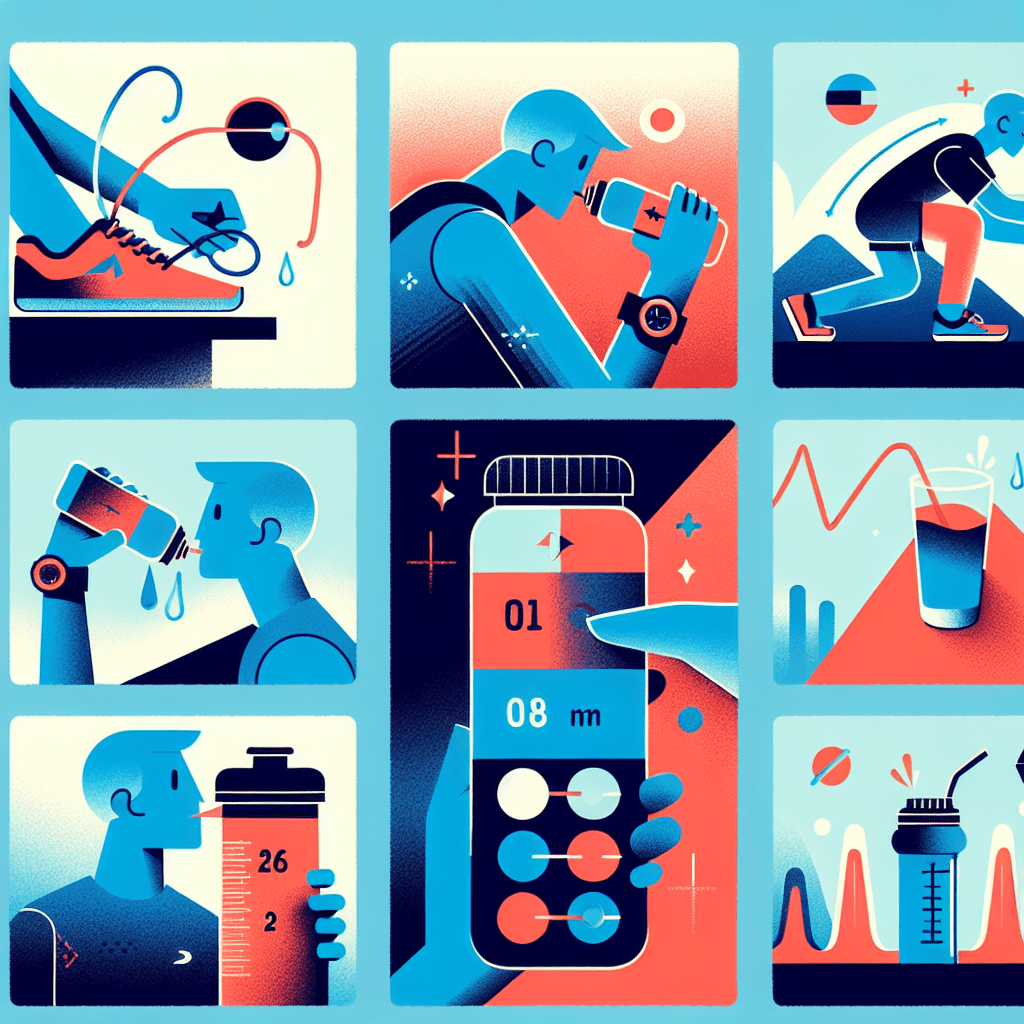Optimal Hydration Techniques for High-Intensity Interval Training (HIIT)

Understanding the Importance of Hydration in High-Intensity Interval Training (HIIT)
High-Intensity Interval Training (HIIT) is a popular form of exercise that combines short bursts of intense activity with periods of lower-intensity recovery or rest. While this type of training can lead to significant health benefits, it also places a high demand on the body, particularly in terms of hydration. Proper hydration is vital for maintaining optimal performance and preventing dehydration-related health issues during and after HIIT workouts.
The Role of Hydration in Physical Performance
Water plays a crucial role in nearly every bodily function, including circulation, digestion, and temperature regulation. During physical activity, the body's demand for water increases as it works to cool itself down through sweating. If this lost fluid isn't replaced, it can lead to dehydration, which can impair physical performance and potentially lead to more serious health issues. As the American Council on Exercise states, "Dehydration can negatively impact performance, and even mild dehydration can significantly impair performance in tasks that require attention, psychomotor, and immediate memory skills."
"Even mild dehydration can significantly impair performance in tasks that require attention, psychomotor, and immediate memory skills."
Optimal Hydration Techniques for HIIT
When it comes to hydration for HIIT, it's not just about drinking water during your workout. Optimal hydration begins before you start exercising and continues after your session is over. Here are some techniques to ensure you stay adequately hydrated:
Pre-Workout Hydration
Start hydrating at least two to three hours before your workout by drinking plenty of water. This gives your body time to absorb the fluid and prepare for the upcoming physical exertion. Some athletes also find it beneficial to consume a sports drink that contains electrolytes to help maintain fluid balance.
Hydration During Your Workout
During your HIIT session, aim to drink small amounts of water every 15 to 20 minutes. This can help replace the fluid you're losing through sweat and keep your body functioning optimally. Avoid drinking large amounts at once, as this can lead to stomach discomfort.
Post-Workout Hydration
After your workout, it's important to replace any fluid that was lost. One way to gauge how much you should drink is by weighing yourself before and after your workout. For each pound of weight lost, aim to consume 16 to 24 ounces of fluid. Additionally, consuming a balanced meal or snack can help replenish electrolytes and promote recovery.
"For each pound of weight lost during exercise, aim to consume 16 to 24 ounces of fluid."
Signs of Dehydration
Knowing the signs of dehydration can help you take action before it impacts your performance or health. Common symptoms include thirst, fatigue, dizziness, and dark-colored urine. If you experience these symptoms, it's important to start rehydrating immediately.
Hydration and Heart Health
Proper hydration is not only crucial for optimal physical performance, but it's also important for heart health. According to the American Heart Association, staying hydrated helps your heart do its job more efficiently. "Keeping the body hydrated helps the heart more easily pump blood through the blood vessels to the muscles. And, it helps the muscles work efficiently," they explain.
"Keeping the body hydrated helps the heart more easily pump blood through the blood vessels to the muscles."
Summary
Hydration plays a critical role in High-Intensity Interval Training (HIIT), influencing both performance and overall health. Optimal hydration techniques include pre-workout, during workout, and post-workout hydration strategies. Recognizing the signs of dehydration and understanding the importance of hydration for heart health are also essential. As we've seen, even mild dehydration can significantly impact performance, making proper hydration a key component of any successful HIIT routine.
As the American Heart Association reminds us, "Keeping the body hydrated helps the heart more easily pump blood through the blood vessels to the muscles." So, whether you're a seasoned athlete or just starting your fitness journey, remember that staying hydrated is just as important as the workout itself.



